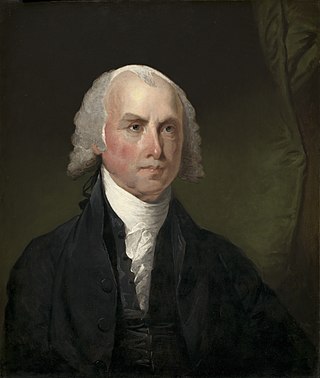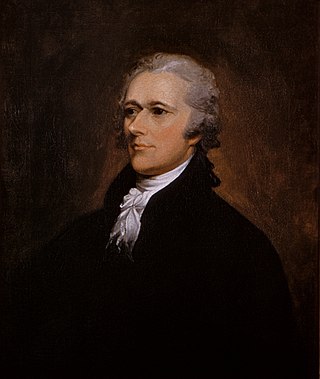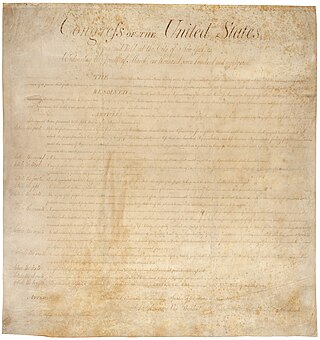
Article One of the United States Constitution establishes the legislative branch of the federal government, the United States Congress. Under Article One, Congress is a bicameral legislature consisting of the House of Representatives and the Senate. Article One grants Congress various enumerated powers and the ability to pass laws "necessary and proper" to carry out those powers. Article One also establishes the procedures for passing a bill and places various limits on the powers of Congress and the states from abusing their powers.

Article Six of the United States Constitution establishes the laws and treaties of the United States made in accordance with it as the supreme law of the land, forbids a religious test as a requirement for holding a governmental position, and holds the United States under the Constitution responsible for debts incurred by the United States under the Articles of Confederation.

The Ninth Amendment to the United States Constitution addresses rights, retained by the people, that are not specifically enumerated in the Constitution. It is part of the Bill of Rights. The amendment was introduced during the drafting of the Bill of Rights when some of the American founders became concerned that future generations might argue that, because a certain right was not listed in the Bill of Rights, it did not exist. However, the Ninth Amendment has rarely played any role in U.S. constitutional law, and until the 1980s was often considered "forgotten" or "irrelevant" by many legal academics.
McCulloch v. Maryland, 17 U.S. 316 (1819), was a landmark U.S. Supreme Court decision that defined the scope of the U.S. Congress's legislative power and how it relates to the powers of American state legislatures. The dispute in McCulloch involved the legality of the national bank and a tax that the state of Maryland imposed on it. In its ruling, the Supreme Court established firstly that the "Necessary and Proper" Clause of the U.S. Constitution gives the U.S. federal government certain implied powers necessary and proper for the exercise of the powers enumerated explicitly in the Constitution, and secondly that the American federal government is supreme over the states, and so states' ability to interfere with the federal government is restricted. Since the legislature has the authority to tax and spend, the court held that it therefore has authority to establish a national bank, as being "necessary and proper" to that end.
The Necessary and Proper Clause, also known as the Elastic Clause, is a clause in Article I, Section 8 of the United States Constitution:
The Congress shall have Power... To make all Laws which shall be necessary and proper for carrying into Execution the foregoing Powers, and all other Powers vested by this Constitution in the Government of the United States, or in any Department or Officer thereof.
In the United States, implied powers are powers that, although not directly stated in the Constitution, are implied to be available based on previously stated powers.

Federalism in the United States is the constitutional division of power between U.S. state governments and the federal government of the United States. Since the founding of the country, and particularly with the end of the American Civil War, power shifted away from the states and toward the national government. The progression of federalism includes dual, cooperative, and new federalism.

Federalist No. 41, titled "General View of the Powers Conferred by the Constitution", is an essay written by James Madison as the forty-first of The Federalist Papers. These essays were published by Alexander Hamilton, with John Jay and James Madison serving as co-authors, under the pseudonym "Publius." No. 41 was first published by The New York Packet on January 19, 1788 and argues about the necessity of the powers the Constitution vested upon the general government as well as the meaning of the phrase "general welfare".

Federalist No. 44 is an essay by James Madison, the forty-fourth of The Federalist Papers. It was published on January 25, 1788 under the pseudonym Publius, the name under which all The Federalist papers were published. This essay addresses the Constitution's limitation of the power of individual states, something strongly decried by the Anti-Federalists, who sought a greater degree of sovereignty for the states. It is titled "Restrictions on the Authority of the Several States".

Federalist No. 66 is an essay by Alexander Hamilton, the sixty-sixth of The Federalist Papers. It was published on March 8, 1788, under the pseudonym Publius, the name under which all The Federalist papers were published. The title is "Objections to the Power of the Senate To Set as a Court for Impeachments Further Considered".

Federalist No. 75 is an essay by Alexander Hamilton and seventy-fifth in the series of The Federalist Papers. It was published on March 26, 1788 under the pseudonym Publius, the name under which all The Federalist papers were published. Its title is "The Treaty Making Power of the Executive", and it is the ninth in a series of 11 essays discussing the powers and limitations of the Executive branch.
The unitary executive theory is a theory of United States constitutional law which holds that the President of the United States possesses the power to control the entire federal executive branch. The doctrine is rooted in Article Two of the United States Constitution, which vests "the executive power" of the United States in the President. Although that general principle is widely accepted, there is disagreement about the strength and scope of the doctrine. It can be said that some favor a "strongly unitary" executive, while others favor a "weakly unitary" executive. The former group argue, for example, that Congress's power to interfere with intra-executive decision-making is limited, and that the President can control policy-making by all executive agencies within the limits set for those agencies by Congress. Still others agree that the Constitution requires a unitary executive, but believe this to be harmful, and propose its abolition by constitutional amendment.
The Taxing and Spending Clause, Article I, Section 8, Clause 1 of the United States Constitution, grants the federal government of the United States its power of taxation. While authorizing Congress to levy taxes, this clause permits the levying of taxes for two purposes only: to pay the debts of the United States, and to provide for the common defense and general welfare of the United States. Taken together, these purposes have traditionally been held to imply and to constitute the federal government's taxing and spending power.

In the United States, judicial review is the legal power of a court to determine if a statute, treaty, or administrative regulation contradicts or violates the provisions of existing law, a State Constitution, or ultimately the United States Constitution. While the U.S. Constitution does not explicitly define the power of judicial review, the authority for judicial review in the United States has been inferred from the structure, provisions, and history of the Constitution.

The United States Bill of Rights comprises the first ten amendments to the United States Constitution. Proposed following the often bitter 1787–88 debate over the ratification of the Constitution and written to address the objections raised by Anti-Federalists, the Bill of Rights amendments add to the Constitution specific guarantees of personal freedoms and rights, clear limitations on the government's power in judicial and other proceedings, and explicit declarations that all powers not specifically granted to the federal government by the Constitution are reserved to the states or the people. The concepts codified in these amendments are built upon those in earlier documents, especially the Virginia Declaration of Rights (1776), as well as the Northwest Ordinance (1787), the English Bill of Rights (1689), and Magna Carta (1215).
The Legal Tender Cases were two 1871 United States Supreme Court cases that affirmed the constitutionality of paper money. The two cases were Knox v. Lee and Parker v. Davis.
The Treaty Clause of the United States Constitution establishes the procedure for ratifying international agreements. It empowers the President as the primary negotiator of agreements between the United States and other countries, and holds that the advice and consent of a two-thirds supermajority of the Senate renders a treaty binding with the force of federal law.
United States v. Locke, 529 U.S. 89 (2000), was a United States Supreme Court case in which the Court unanimously held that certain state regulations regarding oil tankers and oil barges are preempted under the Supremacy Clause of the United States Constitution in deference to the extensive body of federal regulations affecting these classes of vessels.
A general welfare clause is a section that appears in many constitutions and in some charters and statutes that allows that the governing body empowered by the document to enact laws to promote the general welfare of the people, which is sometimes worded as the public welfare. In some countries, it has been used as a basis for legislation promoting the health, safety, morals, and well-being of the people governed by it.
The Supremacy Clause of the Constitution of the United States establishes that the Constitution, federal laws made pursuant to it, and treaties made under its authority, constitute the "supreme Law of the Land", and thus take priority over any conflicting state laws. It provides that state courts are bound by, and state constitutions subordinate to, the supreme law. However, federal statutes and treaties must be within the parameters of the Constitution; that is, they must be pursuant to the federal government's enumerated powers, and not violate other constitutional limits on federal power, such as the Bill of Rights—of particular interest is the Tenth Amendment to the United States Constitution, which states that the federal government has only those powers delegated to it by the Constitution.





